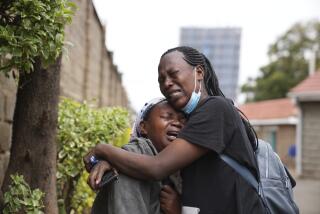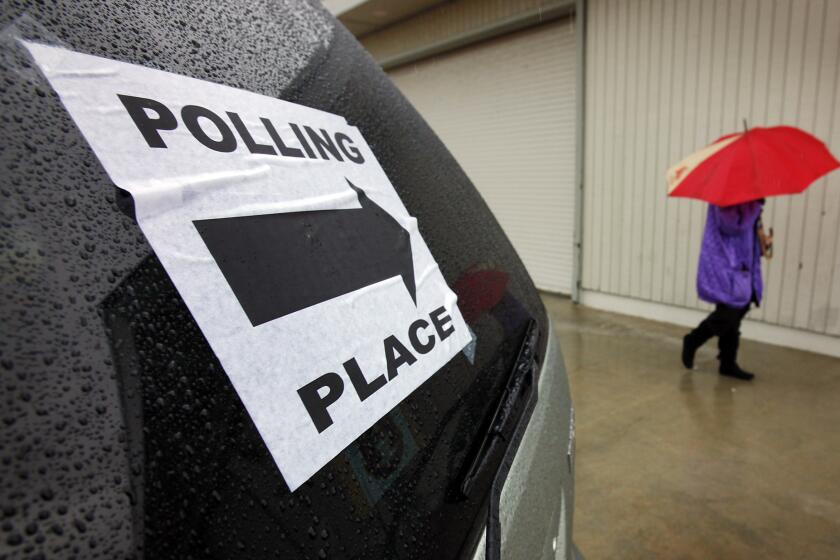Kenyan deputy president excused from crimes-against-humanity trial
LONDON -- In a highly unusual decision, the International Criminal Court allowed Kenya’s deputy president, who is accused of crimes against humanity, to leave his trial at The Hague on Monday to go home and help deal with the terror attack at a Nairobi shopping mall.
William Ruto was excused for a week by the ICC after his attorneys filed an urgent motion asking for proceedings against him to be adjourned so that he could return to Kenya to help the government respond to “an ongoing and extremely serious matter of national security.”
Presiding Judge Chile Eboe-Osuji granted the request, an apparently unprecedented decision in what is already an unprecedented trial, the first by the court of a sitting government leader.
Ruto is accused of orchestrating deadly ethnic attacks after Kenya’s disputed 2007 elections, a spate of violence in which more than 1,000 people died across the East African country. Ruto’s boss, President Uhuru Kenyatta, has been similarly charged and is scheduled to be tried before the ICC in November.
Ruto and Kenyatta deny the charges.
Prosecutors did not object to Ruto’s temporary leave of absence, which the court granted Monday morning even as security forces in Kenya were mounting an assault on the suspected Al Qaeda-linked Somali militants who ambushed shoppers at the upscale Westgate mall in Nairobi on Saturday.
At least 68 people have been killed in the gun attack, whose brazenness and brutality have shocked Kenyans and others around the world.
“The world would have found it intolerable if the president and vice president of the United States were not in the country after 9/11,” Karim A.A. Khan, Ruto’s lead attorney, told judges. “Well, this is Kenya’s 9/11.”
Ruto was expected to leave for his homeland shortly after the judges’ decision to excuse him.
“We hope that some people will begin to contextualize what is going on and begin to appreciate the challenges Kenya is going through, the region is going through, and the complications that are brought by what is going on here,” Ruto told reporters at The Hague.
The urgent motion filed by his lawyers said Ruto was needed back in Kenya to participate “in security briefings and consultations and involvement in other ongoing and very sensitive national security investigations.”
In addition, “Mr. Ruto will be required to deal with the aftermath of such a traumatic and tragic event for Kenya, including attending funerals and other affairs of state,” the motion said.
The first witness to testify against Ruto appeared in court last week. An anonymous Kenyan woman described a notorious incident in which several thousand armed men burned down a wooden church where women and children had taken refuge. Up to 35 people died in the atrocity.
ALSO:
Many hostages said to be rescued in Kenya shopping mall attack
Ghanaian poet Kofi Awoonor among victims of Nairobi mall attack
Kenya shopping mall massacre: Gunfire erupts again at dawn Monday
More to Read
Sign up for Essential California
The most important California stories and recommendations in your inbox every morning.
You may occasionally receive promotional content from the Los Angeles Times.











